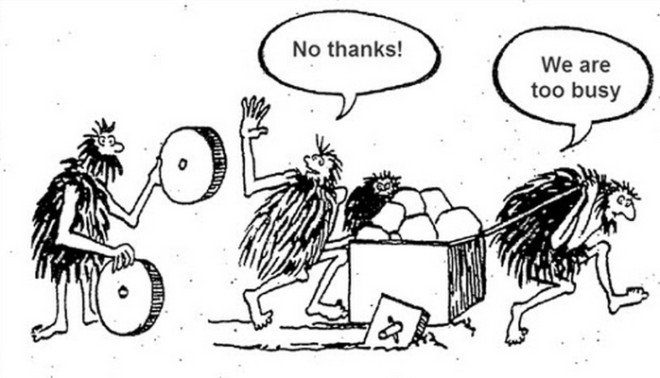What should happen when an organization dies?
Short answer: maybe nothing bad… if you planned for that moment when you CREATED that organizations
“How do we help things to die?" asks Cassie Robinson, specifying she means “How do we close things down that are no longer working?”.
Reading that post made me remember my comments proposal to “Turn Failed Sustainability Startups Into Fertile Soil (Humus) For New Ones - By Making Them Open Source”.
That proposal is about “making quicker progress with sustainability in the world of Startups”, and it basically goes like this:
- 9 out of 10 startups fail in the first 3 years, which is very bad for sustainability reasons
- because whoever tries next to solve the same problem has to start from scratch and reinvent the wheel
- so “How about a fund where startups that have just failed or are about to fail go to and ask one more time for some last funding. They receive something between 5 000 to 10 000 Euros and this money is used to document the solution extensively and put it online under an open license – in short: they OPEN SOURCE it!

Here is what I originally commented when I first read that idea, because it is very likely valid for the more general issue discussed by Robinson, and for everybody generally worrying about the huge waste of efforts we continuously see all around us, in startups but also in charity programs, and many other fields:
- making something that already exists Open Source and putting it online costs nothing (but only WHEN possible, see below). But 5/10K Euros for that OTHER stuff? Pocket change. Nowhere near what you need to pay to “document extensively”, and decently enough to be reusable, something which was not documented extensively from its conception, and is presumably a bit more complex than a can opener. Another, but equivalent way to say the same thing is “if you want your stuff to last and remain able to manage it YOURSELF, you must document it extensively anyway from day one, period”.
- if the startup used/licensed proprietary 3rd party stuff, the whole idea is unfeasible from the beginning. You can only relicense what is yours. In my corporate job days, I’ve seen or heard of several products that had to be redone from scratch, in order to avoid IP violations. The opposite of what that article preaches.
- To make something Open-able AND actually reusable, you have to design it that way from the beginning. You must WANT to share it, documentation and all, EVEN in case you succeed. But they’re talking startups there, and as far as I know, “startup” is short for “let’s put something up together, anything, and make a one-time bet that someone will buy us out of it, asap”. Quite different business model”
Who writes this, why, and how to help
I am Marco Fioretti, tech writer and aspiring polymath doing human-digital research and popularization.
I do it because YOUR civil rights and the quality of YOUR life depend every year more on how software is used AROUND you.
To this end, I have already shared more than a million words on this blog, without any paywall or user tracking, and am sharing the next million through a newsletter, also without any paywall.
The more direct support I get, the more I can continue to inform for free parents, teachers, decision makers, and everybody else who should know more stuff like this. You can support me with paid subscriptions to my newsletter, donations via PayPal (mfioretti@nexaima.net) or LiberaPay, or in any of the other ways listed here.THANKS for your support!